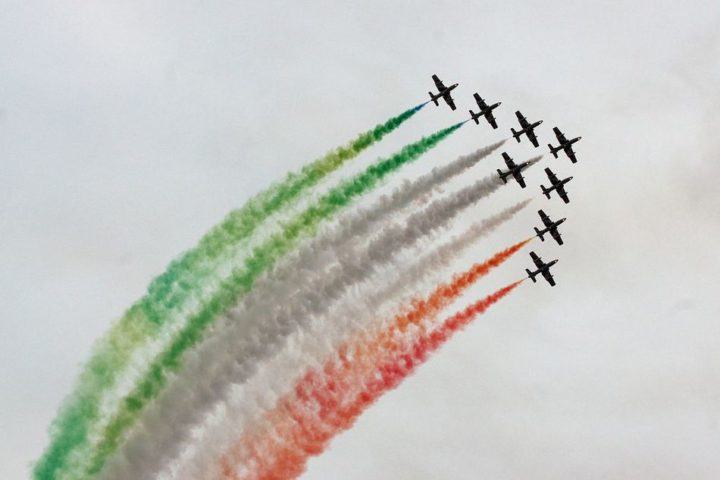Although people will not be gathering in the streets and piazzas, there will be virtual connection and transmissions to remind Italians of the democratic values, social solidarity, cultural pluralism, and civil rights that rose to become part of the Constitution of the Italian Republic. This day marks Italy’s liberation from its Nazi-Fascist occupation of World War II in 1945.[1]
We rely on textbooks, nonfiction writings, stories, films, the arts to give a composite rendering of living during that time. Some of us have heard tales directly from family or friends who have survived. Today, we live in another time of unparalleled consequence worth noting.
By July 1943, Sicily had been invaded and Rome had been bombed by the Allied Forces. Mussolini had been placed under house arrest by King Victor Emmanuel III and the Italian High Command. On September 8th, Italy signed an armistice with the Allied Forces under General Dwight D. Eisenhower in which the Italian government agreed to end all hostilities with the United Nations.[2]
Some events during that period seldom became common public knowledge, except through the stories of those soldiers and officers who fought under the Nazi-Fascist government. More than 620,000 of them defied the shadowy emotions of war, shrewd military tactics, and for whatever personal reasons, “just said no to the Republic of Salò”. Some were killed but many were captured and sent to lagers as forced labor under the “identification” as Italian Military Internees (IMIs) rather than Prisoners of War (POWs). That technicality in nomenclature, agreed upon by Hitler and Mussolini, removed any official recognition for these men to be assisted by the International Red Cross and conveyed a harsh, punitive example. My cousin in Italy was one of them.
In remembering the importance of the April 25th Italian national holiday, Dr. Marco Terzetti, President of the Section of ANEI (National Association Ex Internees of Nazi lagers) in Perugia Italy writes: “our presence…adds value to the memory as a fundamental element in living the present. And just in this moment of burdensome limitations to our personal freedoms, a more attentive reflection on the meaning of April 25th,, the date that has marked a fundamental step in our National Community for a new initiative founded on the principles of liberty and democracy…after the sacrifice of many young men and a civil conflict that has compromised the relationships among individuals with consequences still present today. Here, today, right now that a different lifestyle is imposed upon us, must we gather the opportunity to reinvigorate that spirit which, thanks to the ideals and sacrifices of our fathers, allowed us to “go beyond” placing the basis for adopting the Constitution of our Republic.”[3]
Through textbooks, most of us know how World War II historically ends. Yet few realize that more than a half million military personnel refused to uphold Mussolini’s vision of a New Roman Empire to remake Italy as great as he believed it had been almost as a political religion. The Partisans (partigiani) organized and poor Italian laborers from towns across Italy realized the emptiness of words, the detriment of power gone too far, and gave their support in favor of democracy.
The 2020 paradigm shift has brought about COVID-19 on this April 25th brings us to a place of separation, speculation, consideration, evaluation. The next chapters in history depend on each one of us listening, watching carefully, following common sense, making healthy decisions, adopting vigorous cleaning habits, and using disinfectants only as manufacturers direct.
[1]https://www.history.com/news/mussolinis-final-hours-70-years-ago
[2] http://news.bbc.co.uk/onthisday/hi/dates/stories/september/8/newsid_3612000/3612037.stm
[3] email – ANEI Perugia per il 25 aprile 2020. M.Terzetti, Presidente ANEI Perugia – Albo d’Oro Città di Perugia “Leopoldo Teglia”, www.aneiperugia.it, 23apr 2020.










